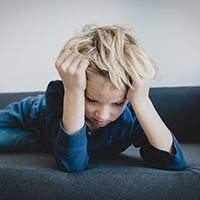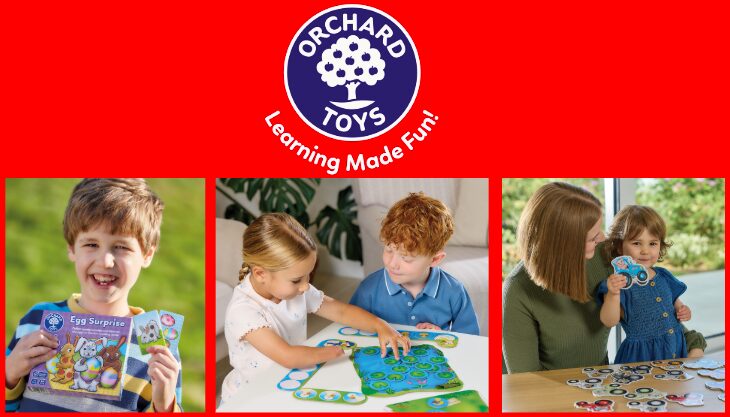Inferiority Complex – Supporting Children

Inferiority Complex In Kids – Things That Disturb a Child’s Mentality
Our children are the biggest objectives and driving forces in our lives. Their success and life achievements bring us joy beyond comparison. That is why, as a parent, it is adamant that we not only cater to their physical nourishment but also aid in developing healthy minds. Having sound mental health in childhood allows our kids to undergo developments as well as reach emotional milestones. This can help them to mature as well as learn good social skills that can aid them in coping with problems at an older age.
There have been several studies in the past that overwhelmingly bring awareness towards the mental health of children, why it is crucial for them, and how it affects them. According to the Centres for Disease Control and Prevention, 73.8% of children aged 3-17 years have depression with anxiety, and almost 47.2% show behavioural problems.
As parents, we need to ensure that our child is facilitated so that they, too, can partake in the various activities and events life has in store for them. In this post, we would like to share with you how an inferiority complex in kids can have an impact on them. So let us see how we can offer our support during the times when they feel challenged.
Impact Of Inferiority Complex On Kids
1. Anxiety

Anxiety, in general, causes nervousness and may cause your child to become worrisome, which is never a good sign. Most commonly, anxiety is caused by stress and can also be caused by fear or unease. A child who has an inferiority complex might show trouble sleeping, fatigue, irritability, and restlessness. For parents, the best remedy is CBT (Cognitive Behavioural Therapy).
Through CBT, you will learn to have the best responses to provide for your anxious child. You have to teach them to face their fears and remove all the ones that are baseless and pointless. Furthermore, you need to encourage them the most and reward them. If problems still persist, then you might have to consult a professional therapist.
2. Depression
Depression can be best described as a mood disorder, and it can actively bring a person’s daily life to a halt if not attended properly. Depression is often accompanied by feelings of anger, loss, and sadness. A child who is depressed will show signs of social withdrawal, sensitivity to rejection, unhealthy diet patterns, vocal outbursts (and crying), feeling guilt, and in the worst-case scenario, even thought of suicide and death. As a parent, you need to act quickly.
Family involvement and CBT are again the gold standards for treatment. Other forms of treatment include DBT (Dialectical Behaviour Therapy), IPT (Interpersonal Psychotherapy), MBCT (Mindfulness-based Cognitive Therapy), and medications.
3. Lack Of Energy

Fatigue or lack of energy is an overall feeling that makes people think they are tired, and there are over 30 possible causes. In children, lack of energy can often best describe as a loss of interest in favourite activities. Other symptoms include not wanting to get out of bed, disinterest in normal daily activities, finding it hard to stand or sit upright, and inability to concentrate or retain information. As a parent, you need to make sure that they get proper sleep and rest.
Make sure that you check on their diet and tend to fulfil their emotional needs. Children might want to avoid answering at first, but you need to be gentle with them and also be persistent. The quicker you get to the cause of their issue or concern, the sooner you will be able to provide them with the relief they need from you.
4. Loss Of Interest
This one is also closely tied to the previous point we mentioned. Loss of interest in a child is not a healthy sign as they are powerhouses when it comes to energy and being overly enthusiastic. If you find your child losing interest, then you actively need to take part and spend dedicated time with them. Your consistent support and effort, plus positive reinforcement can bear fruit, plus help your child to retain their interests.
Perform exercises together, play games, motivate them through stories, offer them a change in the environment, and provide them with new experiences. Creating a positive environment around them can also be quite effective, but it has a consistent approach to be effective.
5. Outbursts Of Anger
If your child shows unwarranted anger, hostility, and aggressive behaviour, then you need to first calm yourself down. Yes, it is you who needs to be calm first! Now once you have taken control of yourself, it is time that you attend to this sudden outburst in a perfectly tranquil manner. Your reaction to their action is extremely important.
A child that goes through a meltdown needs the most support from you. As a parent, you should be the one to request them for permission to speak and talk it out. Next up, you need to get them involved in healthy activities like drawing, reading a book, or any other that helps them regain their focus. Lastly, they all need your affection, so comfort them and give them your uninterrupted attention.
Conclusion
Children have bottled up emotions inside of them. The best parents are those who speak less and allow them to talk more. So be good listeners and let them speak their minds. This will help you off-load them and make them feel less bothered or suffocated. The majority of the problems mentioned above can be avoided by building stronger and friendlier relations with your kids.
Provide them with the support they need from you and give them an ample amount of time. The worst parents are those who, instead of resolving the problem, become a part of it. Never let your child down as they all look up to you even when we are not paying attention to them.



